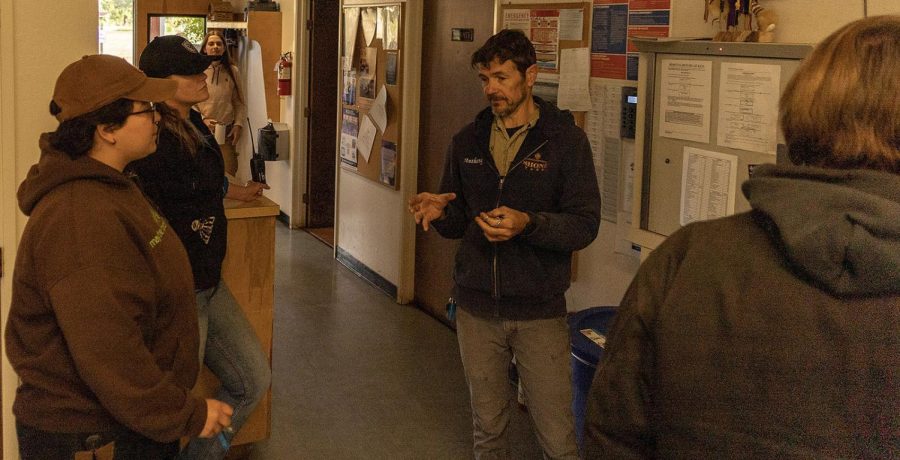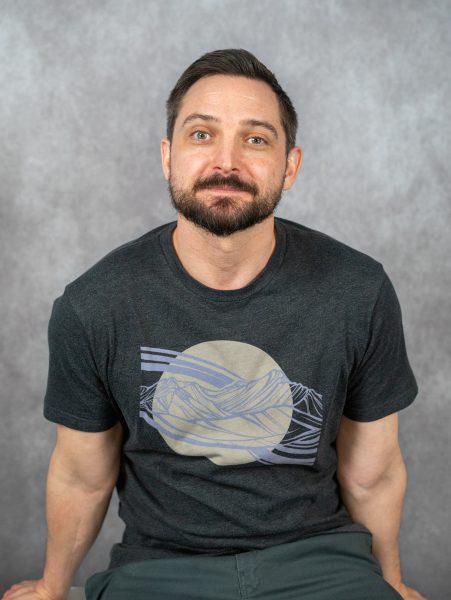Sun, sweat, smiles and sustainability. Santa Rosa Junior College students toil on the soil at Shone Farm as they learn about sustainable agriculture, ecological restoration, forestry and wildfire prevention while practicing community building and mindfulness.
Once a military listening post in World War II, SRJC acquired Shone Farm in 1972 after the military declared it surplus land. Now it’s one of SRJC’s five campuses within Sonoma County and its 365 acres serve as an outdoor learning laboratory.
Conner Murphy, Shone Farm manager, said Shone Farm serves up to 1,000 students; it’s designed to allow them to “learn by doing” and apply what they gain in the classroom to a real world setting. They get to observe crops grown in Shone’s fields, see the effects of pruning the apple trees, check soil health and understand integrated pest management by collecting insects around the farm.
“We have an incredible resource base. We also produce fruits, vegetables, meat, wine, olive oil, and grapes that are made into wine by top vineyard top wineries throughout the county,” Murphy said.
Shone Farm’s classes and programs are a part of the SRJC Agricultural and Natural Resource Management departments, but Murphy said he is open to working with any of SRJC’s programs.
Besides food production and ecological restoration, Murphy said community building and supporting individual wellness is integral to the education at Shone Farm.
“The ability to work hard for a shared goal really brings people together, and that’s something that is important to experience. Working at the farm helps students have a sense of belonging, find a place where they’re comfortable and to be able to contribute to the greater picture, because we grow a lot of food,” he said.
Shone Farm sells some of the food it produces to reinvest in its educational programs. It also donates food to students who are in need and local food banks to support the community, Murphy said, “so there’s this bigger purpose that students can be together and work toward.”
Anthony Blondin, coordinator of Shone Farm productions, said what sets Shone Farm apart from most production farms is that Shone is looking for students with little agricultural experience. Shone Farm also offers a more diverse experience for students since it doesn’t depend on selling crops to maintain itself.
“We don’t have to concentrate on a certain number of crops. We can demonstrate lots of different crops for students to see. We also have fruit and orchards, which a lot of production farms don’t have. They can even work with animals,” Blodin said. “And the staff is phenomenal. Together we have over 100 years of farming experience and knowledge to offer.”
Riley Reed, 21, a student in sustainable agriculture who lives at Shone Farm as part of its residency program, said she gained more practical work experience than she thought possible in an educational setting at Shone Farm.
“It’s been nice to work in an environment that’s all about learning rather than a typical production farm. It’s been a really great experience,” Reed said. “And living on the farm is awesome. Even though there’s a lot of commotion throughout the day, it’s nice that I can just come back to my space here and it’s calm after hours.”






